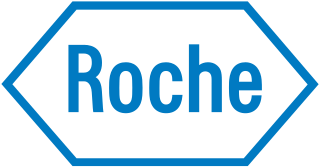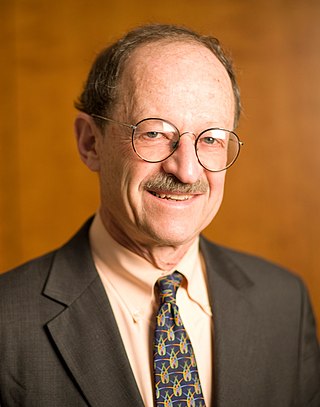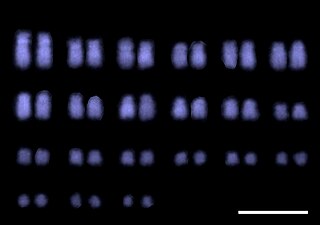
A biopsy is a medical test commonly performed by a surgeon, an interventional radiologist, or an interventional cardiologist. The process involves the extraction of sample cells or tissues for examination to determine the presence or extent of a disease. The tissue is then fixed, dehydrated, embedded, sectioned, stained and mounted before it is generally examined under a microscope by a pathologist; it may also be analyzed chemically. When an entire lump or suspicious area is removed, the procedure is called an excisional biopsy. An incisional biopsy or core biopsy samples a portion of the abnormal tissue without attempting to remove the entire lesion or tumor. When a sample of tissue or fluid is removed with a needle in such a way that cells are removed without preserving the histological architecture of the tissue cells, the procedure is called a needle aspiration biopsy. Biopsies are most commonly performed for insight into possible cancerous or inflammatory conditions.

F. Hoffmann-La Roche AG, commonly known as Roche, is a Swiss multinational holding healthcare company that operates worldwide under two divisions: Pharmaceuticals and Diagnostics. Its holding company, Roche Holding AG, has shares listed on the SIX Swiss Exchange. The company headquarters are located in Basel. Roche is the fifth-largest pharmaceutical company in the world by revenue and the leading provider of cancer treatments globally. In 2023, the company’s seat in Forbes Global 2000 was 76.

Harold Eliot Varmus is an American Nobel Prize-winning scientist. He is currently the Lewis Thomas University Professor of Medicine at Weill Cornell Medicine and a senior associate at the New York Genome Center.
The National Cancer Institute (NCI) coordinates the United States National Cancer Program and is part of the National Institutes of Health (NIH), which is one of eleven agencies that are part of the U.S. Department of Health and Human Services. The NCI conducts and supports research, training, health information dissemination, and other activities related to the causes, prevention, diagnosis, and treatment of cancer; the supportive care of cancer patients and their families; and cancer survivorship.

Ludwig Cancer Research is an international community of scientists focused on cancer research, with the goal of preventing and controlling cancer. It encompasses the Ludwig Institute for Cancer Research, an international non-profit organization founded in 1971 by philanthropist Daniel K. Ludwig. The Institute is headquartered in New York City, with a European office located in Zürich. There are currently three Ludwig Branches: Ludwig Lausanne, Ludwig Oxford and Ludwig Princeton. In addition, there are six Ludwig Centers at leading institutions across the United States of America. Together, the Institute, Branches and Centers are known as Ludwig Cancer Research.

Personalized medicine, also referred to as precision medicine, is a medical model that separates people into different groups—with medical decisions, practices, interventions and/or products being tailored to the individual patient based on their predicted response or risk of disease. The terms personalized medicine, precision medicine, stratified medicine and P4 medicine are used interchangeably to describe this concept, though some authors and organizations differentiate between these expressions based on particular nuances. P4 is short for "predictive, preventive, personalized and participatory".

Molecular cytogenetics combines two disciplines, molecular biology and cytogenetics, and involves the analysis of chromosome structure to help distinguish normal and cancer-causing cells. Human cytogenetics began in 1956 when it was discovered that normal human cells contain 46 chromosomes. However, the first microscopic observations of chromosomes were reported by Arnold, Flemming, and Hansemann in the late 1800s. Their work was ignored for decades until the actual chromosome number in humans was discovered as 46. In 1879, Arnold examined sarcoma and carcinoma cells having very large nuclei. Today, the study of molecular cytogenetics can be useful in diagnosing and treating various malignancies such as hematological malignancies, brain tumors, and other precursors of cancer. The field is overall focused on studying the evolution of chromosomes, more specifically the number, structure, function, and origin of chromosome abnormalities. It includes a series of techniques referred to as fluorescence in situ hybridization, or FISH, in which DNA probes are labeled with different colored fluorescent tags to visualize one or more specific regions of the genome. Introduced in the 1980s, FISH uses probes with complementary base sequences to locate the presence or absence of the specific DNA regions. FISH can either be performed as a direct approach to metaphase chromosomes or interphase nuclei. Alternatively, an indirect approach can be taken in which the entire genome can be assessed for copy number changes using virtual karyotyping. Virtual karyotypes are generated from arrays made of thousands to millions of probes, and computational tools are used to recreate the genome in silico.
Illumina, Inc. is an American biotechnology company, headquartered in San Diego, California. Incorporated on April 1, 1998, Illumina develops, manufactures, and markets integrated systems for the analysis of genetic variation and biological function. The company provides a line of products and services that serves the sequencing, genotyping and gene expression, and proteomics markets, and serves more than 155 countries.
Personal genomics or consumer genetics is the branch of genomics concerned with the sequencing, analysis and interpretation of the genome of an individual. The genotyping stage employs different techniques, including single-nucleotide polymorphism (SNP) analysis chips, or partial or full genome sequencing. Once the genotypes are known, the individual's variations can be compared with the published literature to determine likelihood of trait expression, ancestry inference and disease risk.
The International Cancer Genome Consortium (ICGC) is a voluntary scientific organization that provides a forum for collaboration among the world's leading cancer and genomic researchers. The ICGC was launched in 2008 to coordinate large-scale cancer genome studies in tumours from 50 cancer types and/or subtypes that are of main importance across the globe.

Molecular diagnostics is a collection of techniques used to analyze biological markers in the genome and proteome, and how their cells express their genes as proteins, applying molecular biology to medical testing. In medicine the technique is used to diagnose and monitor disease, detect risk, and decide which therapies will work best for individual patients, and in agricultural biosecurity similarly to monitor crop- and livestock disease, estimate risk, and decide what quarantine measures must be taken.

Atezolizumab, sold under the brand name Tecentriq among others, is a monoclonal antibody medication used to treat urothelial carcinoma, non-small cell lung cancer (NSCLC), small cell lung cancer (SCLC), hepatocellular carcinoma and alveolar soft part sarcoma, but discontinued for use in triple-negative breast cancer (TNBC). It is a fully humanized, engineered monoclonal antibody of IgG1 isotype against the protein programmed cell death-ligand 1 (PD-L1).

Alectinib (INN), sold under the brand name Alecensa, is an anticancer medication that is used to treat non-small-cell lung cancer (NSCLC). It blocks the activity of anaplastic lymphoma kinase (ALK). It is taken by mouth. It was developed by Chugai Pharmaceutical Co. Japan, which is part of the Hoffmann-La Roche group.
Clinicogenomics, also referred to as clinical genomics, is the study of clinical outcomes with genomic data. Genomic factors have a causal effect on clinical data. Clinicogenomics uses the entire genome of a patient in order to diagnose diseases or adjust medications exclusively for that patient. Whole genome testing can detect more mutations and structural anomalies than targeted gene testing. Furthermore, targeted gene testing can only test for the diseases for which the doctor screens, whereas testing the whole genome screens for all diseases with known markers at once.
Genomic Health, Inc. is a company focusing on genetic research specifically in cancer detection, based out of Redwood City, California. The company was acquired by and merged with Exact Sciences Corporation in 2019.
Sophia Genetics SA is a data-driven medicine software company with headquarters in Lausanne, Switzerland and Boston, Massachusetts. It provides genomic and radiomic analysis for hospitals, laboratories, and biopharma institutions.

Helmy Eltoukhy is an American scientist and a businessperson who co-founded startups Avantome and Guardant Health. He is best known for his contributions to genomics, semiconductor DNA sequencing, and personalized medicine. His startups were acquired by Illumina in 2008. Avantome was founded to develop and commercialize semiconductor-based DNA sequencing, during the race for the $1,000 genome. Guardant Health was founded to pioneer non-invasive liquid biopsy approaches for cancer diagnosis, monitoring, personalized medicine treatment, and research.

Richard Burnham Lanman is an American biotechnology entrepreneur, physician scientist, and naturalist. His contributions relate to improving diagnosis and utilization of less invasive medical procedures, most recently as Global Chief Medical Officer at Guardant Health, Inc., a precision oncology company that developed a blood test replacing invasive tissue biopsies to sequence tumor DNA and improve cancer treatment selection. Lanman has worked in five different medical specialties, oncology, cardiology, endocrinology, pulmonology, and psychiatry, as well as historical ecology, and has authored or co-authored 130 peer-reviewed scientific publications.
Levi A. Garraway is an American oncologist. His research team was among the first to adapt genomics technologies to enable scalable, high-throughput clinical approaches to cancer gene mutation profiling. As a result, he was inducted into the American Society for Clinical Investigation, American Association for Cancer Research, and National Academy of Medicine.

Guardant Health, Inc. is an American biotechnology company based in Palo Alto, California. Co-founders Helmy Eltoukhy and AmirAli Talasaz serve as co-chief executive officers.











